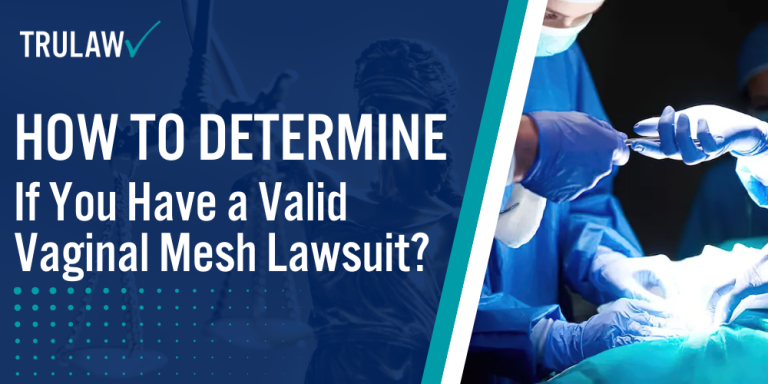The transvaginal mesh litigation has targeted multiple manufacturers whose products have been associated with severe complications in women.
These mesh devices, initially promoted as safe and effective solutions for pelvic floor disorders, became the center of one of the largest medical device mass torts in history.
Holding Mesh Manufacturers Accountable
Several major medical device companies have faced legal action over their transvaginal mesh products, resulting in billions of dollars in settlements and verdicts.
Lawsuits have alleged that these manufacturers failed to adequately test their products before marketing them, misrepresented the safety and efficacy of the devices, and neglected to warn patients and physicians about potential risks.
Major manufacturers named in transvaginal mesh lawsuits include:
- Ethicon (Johnson & Johnson) – The Gynecare division of Ethicon faced over 40,000 lawsuits for products including the Gynecare Prolift, TVT Secur, and Gynecare Prosima systems.
- C.R. Bard – Named in thousands of lawsuits over the Avaulta Plus, Avaulta Solo, and Align Urethral Support System. Bard paid approximately $200 million to resolve claims related to their pelvic mesh products.
- Boston Scientific – Faced litigation over products including the Pinnacle Pelvic Floor Repair Kit, Obtryx Sling System, and Uphold LITE Vaginal Support System.
- American Medical Systems (AMS) – Now owned by Endo International, AMS settled claims involving their Perigee, Apogee, and Elevate implants for more than $1.6 billion.
- Coloplast – A Danish company whose products, including the Restorelle DirectFix Anterior mesh, have been named in lawsuits.
- Mentor Corporation – Before being acquired by Johnson & Johnson, Mentor produced the ObTape Vaginal Sling, which was implanted between 2003 and 2006.
- Cook Medical – Faced litigation over its Surgisis Biodesign products, which utilize biological rather than synthetic mesh materials but have still been associated with adverse events.
Recalled Vaginal Mesh Products
Only one transvaginal mesh product—Boston Scientific’s ProteGen Sling—has been officially recalled, making it a unique case in the history of mesh devices.
Most manufacturers have instead “voluntarily withdrawn” their products from the market in response to FDA actions and mounting litigation, a distinction that has significant implications for patients and the legal landscape.
The following products have been recalled or withdrawn from the market:
- ProteGen Sling (Boston Scientific) – The first FDA-cleared mesh product for stress urinary incontinence (SUI) and the only one officially recalled.
- Gynecare Products (Ethicon) – In 2012, Ethicon discontinued sales of four products worldwide: the Gynecare Prolift Kit, Gynecare Prolift + M Kit, Gynecare TVT Secur, and Gynecare Prosima Pelvic Floor Repair System Kit.
- Mentor ObTape Vaginal Sling – Withdrawn from the market in 2006 after reports of high rates of vaginal extrusion.
- Multiple Products Following FDA Reclassification – After the FDA reclassified transvaginal mesh for pelvic organ prolapse as Class III (high-risk) devices in 2016 and required premarket approval (PMA) applications, most manufacturers chose to discontinue their products rather than conduct costly clinical trials.
Additional discontinued products include the AMS Apogee and Perigee Systems, AMS Single Incision Sling System, Bard Avaulta Plus Biosynthetic Support System, Bard Avaulta Solo Support System, and Adjust TM Adjustable Single Incision Sling.
The FDA’s regulatory actions, particularly the 2019 order for manufacturers to cease selling mesh for transvaginal repair of anterior compartment prolapse, effectively ended the market for these devices, though mesh products for stress urinary incontinence and abdominal implantation for pelvic organ prolapse remain available with specific regulatory controls.
For women who have received any of these mesh products and experienced complications, understanding which specific device was implanted is crucial information when considering legal action, as different settlements and legal strategies may apply based on the manufacturer and product involved.


